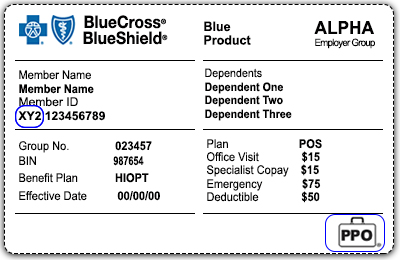Financing is one of the highest-paying sectors in the US economy, and the market draws numerous task candidates for precisely that reason. Monetary managers, for example, are paid an average of $127,990 each year, and according to the Bureau of Labor Stats, work for monetary supervisors is projected to rise 19 percent between 2016 and 2026, which is much faster than the average for other professions.
If you're trying to find a high-paying profession, browse the list we have actually collected with the highest paying tasks in finance. It ends up that financing isn't simply for people who were mathematics whizzes in college. Lots of people working in the financial industry have backgrounds in liberal arts and humanities. Professions in the financing market need numerous degrees of quantitative understanding and experience some individuals in the market will have a Ph.
in information science, while others might increase to equally high pay grades through their capability to get in touch with customers, recognize cancel a timeshare patterns and put in long hours. Before you begin a career in the financing market, it is very important to understand what your ultimate profession goals remain in the field, and whether you will require any additional education or certifications to reach those objectives down the line.
In basic, investment lenders raise cash for their clients by providing financial obligation or offering equity in business for their clients. They also encourage clients on investment opportunities and techniques, along with help with mergers and acquisitions. Typically needing long hours and a strong work principles, striving financial investment lenders need to be solid in their method to the task.

This kind of research study is accomplished through mathematical and qualitative analysis of monetary information, public records of business, recent news and other information sources. Like equity analysts, monetary experts utilize quantitative and qualitative methods to study the efficiency of financial investments such Visit website as stocks, bonds and products in order to supply investment assistance to services and people.
Credit risk supervisors establish, execute and keep policies and protocols that help to decrease the credit threat of banks. Their duties consist of constructing monetary models that anticipate credit danger direct exposure in addition to tracking and reporting on credit risk to the organizations they are utilized by. An extremely quantitative task, becoming a credit danger manager frequently needs an area-specific master's degree.
Some Known Details About The Person Who Receives Financial Protection From A Life Insurance Plan Is Called A
This role often needs an MBA or degree in accounting or finance, and in some cases it is required that staff members in this role are certified as an accountant. Tax directors in financing supervise tax compliance, tax techniques and tax accounting for financial organizations. This is a position that typically needs a bachelor's degree, as well as comprehensive experience with accounting and taxes.
The vice president of analytics is in charge of the collection and analysis of data within an organization. They use this data to help with vital functions for the company such as organization development, strategy, marketing and advertising. This position usually reports to the highest management of an organization. To be a handling director at a financial investment bank or in an investment banking role is one of the greatest rungs on the totem pole in the field of financing you can reach.
They set methods for profit maximization and lead teams to carry out the techniques. A career in the financing market normally needs a bachelor's degree. While learning fields like financing, service, economics and mathematics can help you score your preliminary gig and carry out well there, the market is likewise open up to those who studied different topics, from English to history, as long as you have some sort of quantitative background.
Typically, an MBA or associated master's degree or even much better, a Ph. D. in economics can immediately bump up your pay prospects. While the financing market isn't constantly understood for relaxing hours and worry-free workplace, it is a place where putting in your time as a junior staff member, you can see big payoffs in terms of both wage and decreased work hours as you advance through the ranks.
If you have https://b3.zcubes.com/v.aspx?mid=5248844&title=little-known-questions-about-how-to-find-out-if-life-insurance-policy-exists a strong propensity for numbers, you might be an excellent candidate for a financing major. Nevertheless, your options post-graduation may not be what you expect. Yes, it's true that a great deal of finance degree graduates end up on Wall Street. However, there are many other high quality positions delivering a stable job as well as an impressive income that fit together well with the financing skill-set.
Throughout your education, you will discover personal financing, accounting, principles of markets, and financial concepts of company. You'll learn the mathematics related to money, and establish skills in statistics. However you'll also learn theoretical principles, such as ethics in finance and organizational change. You'll discover interaction, specifically how to interact intricate numbers, that make perfect sense to you, to people who have less understanding of the subject.
The Of Which Of The Following Best Describes Term Life Insurance
This will help you become a strong factor to numerous services, not just the ones that need someone to run their financial resources. Many tasks in the financial sector will require a postgraduate degree or some form of job-related experience and one-the-job training. Nevertheless, these careers allow you to go straight from class to high-paying jobs for finance majors.
Financial Analyst$ 84,0640 11% Bachelor' sWorking with people or services (or both), monetary analysts supply valuable services by helping individuals make choices with their finances. They might carry out a large range of services, including suggestions on investments, examining data, studying financial trends, and preparing composed financial reports. Monetary experts typically deal with banks, security firms, and financial investment business.
The top 10% in this field delight in salaries over $165,580, making this one of the best entry-level jobs for financing majors. Maryville University BS in Financial Services Spending plan Analyst$ 75,240 7% Bachelor's By preparing budget plan reports and keeping an eye on spending, spending plan analysts help numerous organizations remain organized with their financial resources. Specific duties can consist of the advancement of spending plans, examining supervisor plans, integrating department budgets, and describing suggestions for funding demands.
Budget plan analysts have an exceptional typical wage of $75,240, yet this profession typically just needs a bachelor's degree and no previous experience or specific training. With the top 10% earning over $113,740, it remains a financially rewarding entry-level job for financing majors. Grand Canyon University BS in Finance & EconomicsAccounting professional & Auditor$ 30,830 10% Bachelor's Concentrating on the preparation and evaluation of financial records, accounting professionals and auditors ensure that these files are accurate and truthful.

With financial competence, they could also be entrusted with insuring the business runs effectively from a costs viewpoint. Accountants and auditors hold an exceptional average salary, however if you work your way into the leading 10% of this field, you can expect incomes over $122,220. This gives you a tremendous wage in a field that has an expected growth of over 10% (how much is life insurance).
This profession consists of lots of duties, including preparing financial statements, monitoring monetary information, and monitoring staff members who are conducing financial-related work. Above all, they are responsible for the financial health of a company, be it an organization, non-profit, or federal government workplace. This profession has an impressive average income, but if you work your method into the top 10% of the field, you can anticipate incomes of over $208,000.